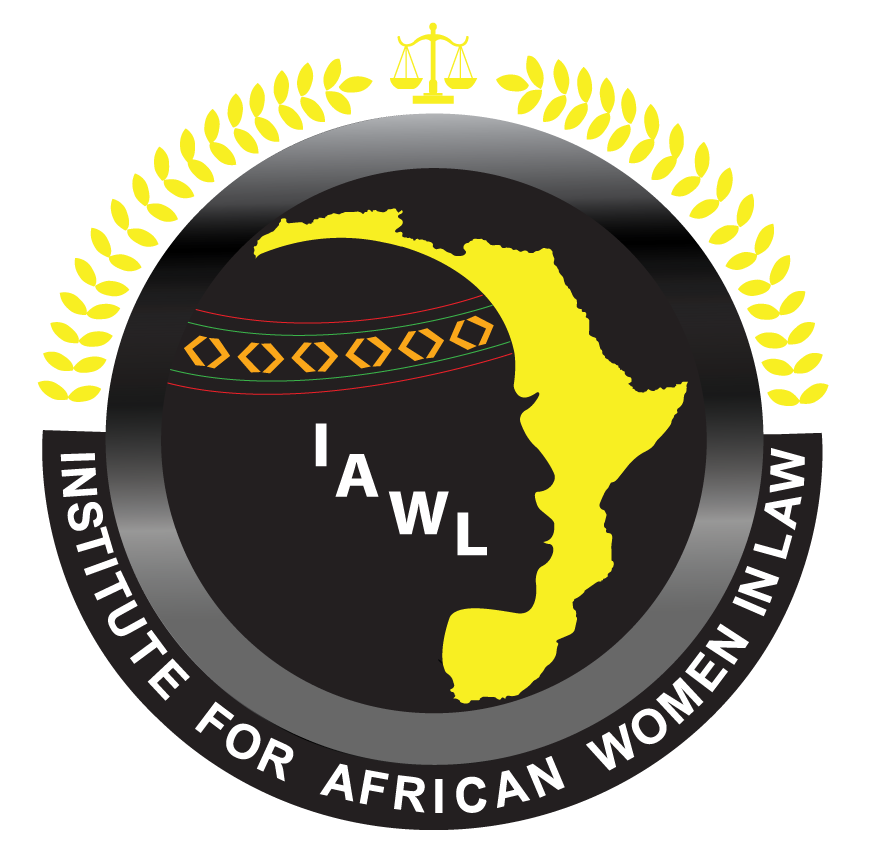The Rise of African Women Chief Justices: A Missed Opportunity for South Africa?
- IAWL

- Apr 4, 2022
- 3 min read
Updated: Apr 11, 2022
By: Maame Efua Addadzi-Koom, Research and Innovation Lead, IAWL.
On March 10, 2022, it was announced that President Ramaphosa had appointed Deputy Chief Justice, Justice Raymond Zondo, as the next Chief Justice of the Republic of South Africa effective April 1, 2022. The announcement also mentioned that President Ramaphosa had nominated Justice Mandisa Maya, the only female Chief Justice nominee, for the position of Deputy Chief Justice after becoming vacant in April. Although she will have to be interviewed for the position.
In September 2021, President Ramaphosa made a public invitation for Chief Justice nominees after Chief Justice Mogoeng retired. About 500 names were submitted out of which only four were shortlisted. Of the four shortlisted nominees, Justice Maya, President of the Supreme Court of Appeal, was the only woman. Not only that, she was also the first woman ever to be interviewed for the Chief Justice position in South Africa’s history. Since South Africa was yet to have a female Chief Justice, many women advocates believed that, with Justice Maya’s nomination, South Africa was finally going to chalk up its first. The March 10 announcement, therefore, left some women activists’ circles completely nonplussed. Did South Africa miss an opportunity? How long before such an opportunity presents itself again?
Women in South Africa are more than men. Yet, the gender composition of South Africa’s judiciary does not reflect this demographic. As of 2021, 43% percent of all superior court judges in South Africa were women. The number of women judges in the top judicial ranks is lower. By the end of February 2022, only nine (31%) out of 29 leaders in the superior courts were women.
Although women judges in South Africa have been appointed since 1994, it took almost two decades for them to be appointed to take up leadership positions within the judiciary. The first female judge president, Monica Leeuw, was appointed in 2012. Two years later in 2014, the second was appointed. Leadership is key to empowering women in all sectors of society including the judiciary. Women in judicial leadership will substantially contribute to judicial governance that is sensitive to the peculiar needs of women. Therefore, beyond achieving gender parity on the bench, equal representation of women in the judiciary’s leadership is essential and should be prioritized.
In Africa, women chief justices and presidents of constitutional courts started emerging in the 1990s. Eighteen women chief justices and presidents of constitutional courts had been recorded on the continent between 1990 to 2014, most of which were firsts for women. Dawuni & Kang (2015) attribute five main factors to the rise of women judicial leaders in Africa: (a) the legal system of the country, (b) the selection method, (c) the commitment of gatekeepers, (d) the end of a major armed conflict and (e) regional diffusion. Of the five factors, the commitment of gatekeepers stood out as the most pressing in the recent Chief Justice appointment in South Africa. We believe that, had the gatekeepers, particularly the executive had the will and women’s representation in judicial leadership very high up on their agenda, the March 10 announcement would have turned out differently. In fact, during the Judicial Service Commission’s interview with Justice Maya, the Commission asked if South Africa was ready for a female chief justice to which she responded in the affirmative. She also emphasized during her interview: "I am not good because I am a woman, I’m just a good woman judge.” Even though the JSC recommended Justice Maya for the position, she was not appointed by the President. By this post, we are advocating for South Africa’s judicial leadership gatekeepers to show more commitment toward appointing women judges to the top ranks of the judiciary going forward.
It seems that with Justice Zondo’s appointment, South Africa would have to wait a little longer to jump on the African women chief justices bandwagon. We extend our congratulations and best wishes to Justice Zondo on his appointment while we hope that his successor will be a woman. Because as Justice Maya said during her interview, “South Africa has always been ready to have a female Chief Justice” – a long overdue appointment.
